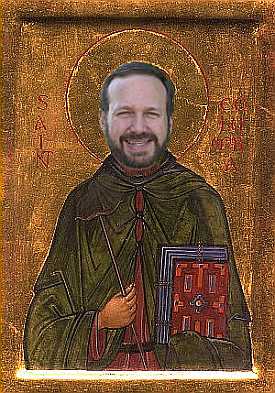 One of the things that bothers me most about believers in today’s churches, especially Western churches, is our assumption of superiority. Many of us church people display an inflated sense of arrival, as if we are the pinnacle of Christian expression in all of human history.
One of the things that bothers me most about believers in today’s churches, especially Western churches, is our assumption of superiority. Many of us church people display an inflated sense of arrival, as if we are the pinnacle of Christian expression in all of human history.
Those fellow believers in some old cave somewhere who wrote about their experience of the Faith? Morons. Those Middle Ages Christians who hid from “the infidel” and saw their numbers martyred? Know-nothings. Those theologians from the halls of 18th-century European centers of learning? Mental midgets.
Only we get it. Ours is the only understanding of Christianity that matters. The foundation upon which we stand is little more than a pile of spiritual-sounding ideas whose time has passed. Our knowledge and praxis are the epitome of what it means to be a Christian, and no one who came before us has anything to say to us about what to believe and how to live.
Here is the lunkheadedness in that commonly encountered line of thinking…
The predominant eschatology within the United States today is dispensational premillenialism. As an explanation of end times, it is only about 160 years old. The form most widely held, which mirrors what is found in Hal Lindsey’s 1970s-era series of Late Great Planet Earth books, is closer to 60 years old.
What is amazing about this is that nearly all the Christians who have ever lived NEVER believed that explanation of the events of the end. They held another view—one of many, it seems. I once took a class in college that covered 16 different understandings of the events in the Book of Revelation, each understanding predominant in the Church at one time or another.
If you are a betting person, you understand chances are high that not all those forebears were entirely wrong in their interpretations of the Bible and the practice of the Faith.
While it is true we have a bit more knowledge today about science than we once did, even scientific thought changes, and often in ways that reinforce what someone said a hundred years ago rather than last week. But as much as we want our faith to be scientific, most of the questions answered in the Bible are philosophical in nature, and to think what Christians thought 300 years ago has no application today is a grave error.
Every day, I must ask myself how much more of the Holy Spirit I have than say Justin Martyr, Polycarp, Augustine, Thomas Aquinas, Jan Hus, Martin Luther, Jonathan Edwards, Alfred Edersheim, and so on. The answer? Probably less. Much less.
And I would suggest that given the reality of the presence of God in the lives of those long-deceased men of faith, you are not looking so good yourself. Yet you and I somehow think we know more about God, Jesus, the Holy Spirit, and the Christian Faith than they ever did because our teaching today is SO much better than it was in their day.
Hardly.
If anything, I find myself brought low by the reality that I know almost nothing. While there is no glory in ignorance, I am at least humbled by the truth that I am not the final authority on most things that pertain to the Christian Faith. People from the past, many centuries dead, can still speak to me today through their writings. And chances are—to the betting man, at least—they have more to say to me (and to you) than I care to give them credit. Perhaps I should read them to see what they knew and how they lived in light of that knowledge.
What is worse than a puffed-up Christian who thinks he knows everything—unless it is one who discounts the wisdom of those who went before him? And isn’t that what most blowhards do? Don’t most think they are the ones who have arrived?
More and more, a hand clasped firmly over the mouth seems to be the response of the wise. We know less than we think we do. Better to rejoice humbly and be quiet than to remove that hand and show our arrogance despite how little we actually comprehend.

